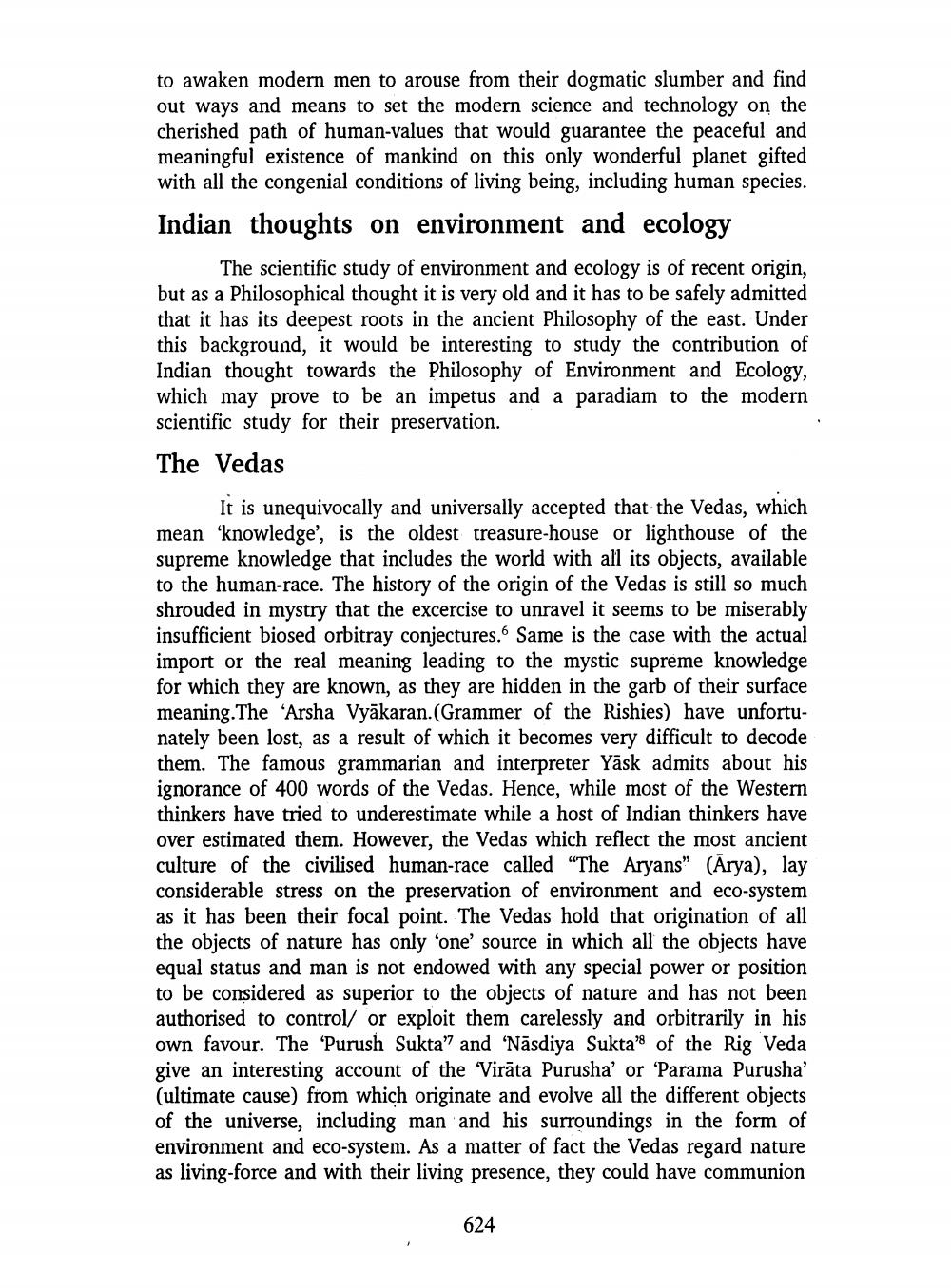________________
to awaken modern men to arouse from their dogmatic slumber and find out ways and means to set the modern science and technology on the cherished path of human-values that would guarantee the peaceful and meaningful existence of mankind on this only wonderful planet gifted with all the congenial conditions of living being, including human species. Indian thoughts on environment and ecology
The scientific study of environment and ecology is of recent origin, but as a Philosophical thought it is very old and it has to be safely admitted that it has its deepest roots in the ancient Philosophy of the east. Under this background, it would be interesting to study the contribution of Indian thought towards the Philosophy of Environment and Ecology, which may prove to be an impetus and a paradiam to the modern scientific study for their preservation.
The Vedas
It is unequivocally and universally accepted that the Vedas, which mean 'knowledge', is the oldest treasure-house or lighthouse of the supreme knowledge that includes the world with all its objects, available to the human-race. The history of the origin of the Vedas is still so much shrouded in mystry that the excercise to unravel it seems to be miserably insufficient biosed orbitray conjectures." Same is the case with the actual import or the real meaning leading to the mystic supreme knowledge for which they are known, as they are hidden in the garb of their surface meaning.The 'Arsha Vyäkaran.(Grammer of the Rishies) have unfortu nately been lost, as a result of which it becomes very difficult to decode them. The famous grammarian and interpreter Yask admits about his ignorance of 400 words of the Vedas. Hence, while most of the Western thinkers have tried to underestimate while a host of Indian thinkers have over estimated them. However, the Vedas which reflect the most ancient culture of the civilised human-race called "The Aryans" (Arya), lay considerable stress on the preservation of environment and eco-system as it has been their focal point. The Vedas hold that origination of all the objects of nature has only 'one' source in which all the objects have equal status and man is not endowed with any special power or position to be considered as superior to the objects of nature and has not been authorised to control/ or exploit them carelessly and orbitrarily in his own favour. The 'Purush Sukta" and 'Näsdiya Sukta of the Rig Veda give an interesting account of the 'Viräta Purusha' or 'Parama Purusha' (ultimate cause) from which originate and evolve all the different objects of the universe, including man and his surroundings in the form of environment and eco-system. As a matter of fact the Vedas regard nature as living-force and with their living presence, they could have communion
624




